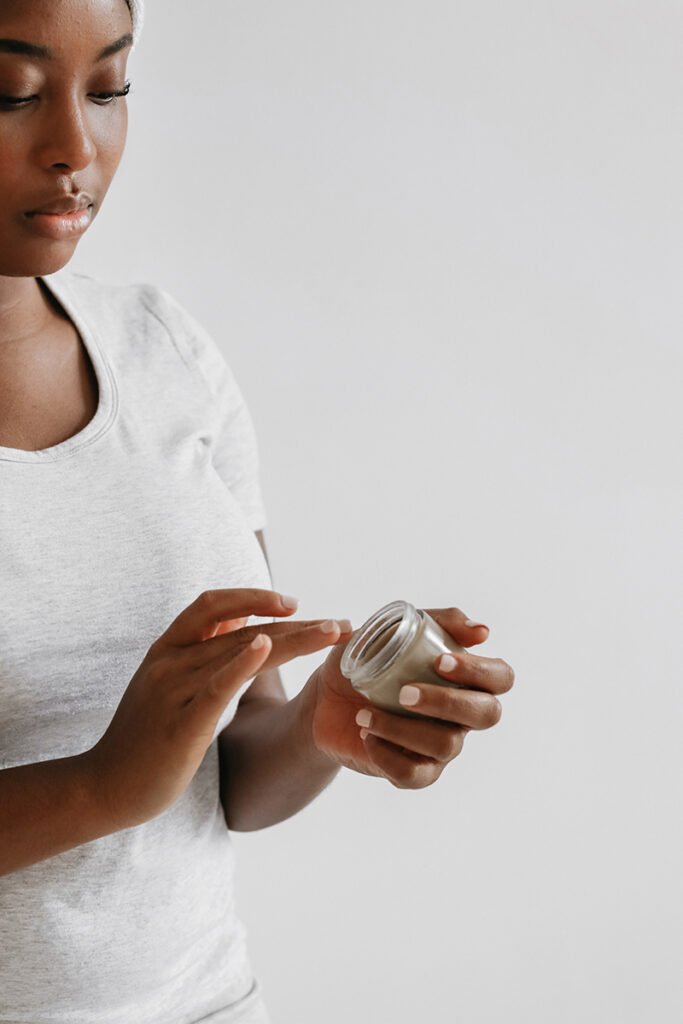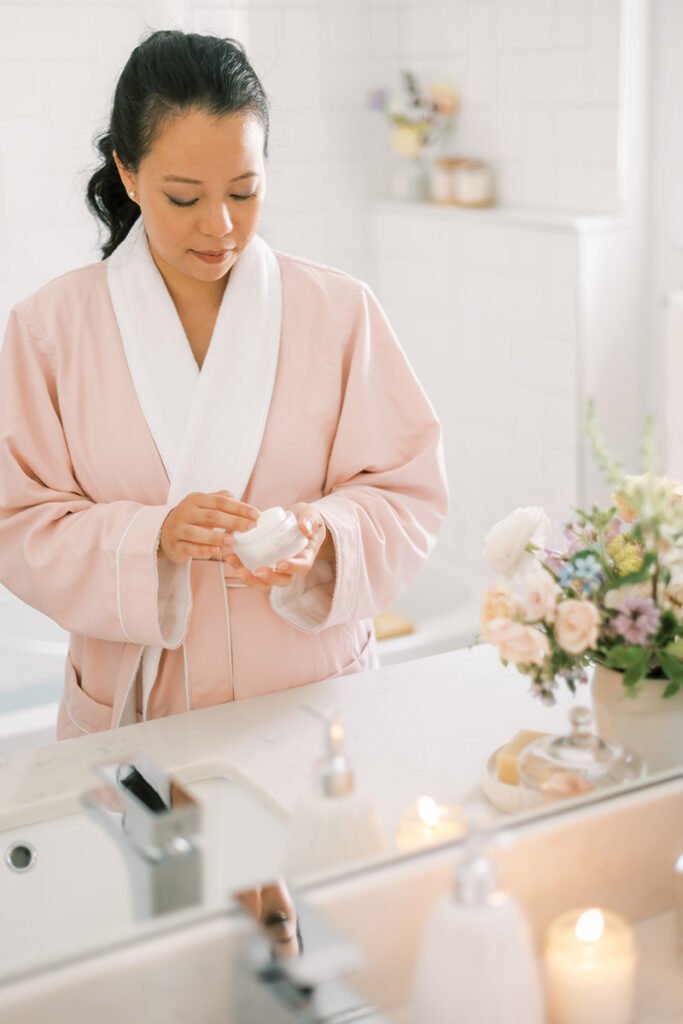Does Oily Skin Need Moisturizer? Here’s What You Need to Know
If you have oily skin, you might think that moisturizer is the last thing you need. After all, your skin already produces enough oil, right? However, the truth is that even oily skin needs moisturizer. In fact, skipping moisturizer can actually make your skin more oily.
When you don’t moisturize oily skin, your skin can become dehydrated. This can lead to your skin producing even more oil to compensate for the lack of moisture. This can result in clogged pores, blackheads, and acne.
By using a moisturizer specifically designed for oily skin, you can help balance your skin’s oil production while keeping it hydrated.
There are many different types of moisturizers available for oily skin. Some are oil-free, while others contain ingredients like salicylic acid to help fight acne.
It’s important to choose a moisturizer that is designed for your skin type and addresses any specific concerns you may have. With the right moisturizer, you can keep your oily skin looking and feeling its best.

Understanding Oily Skin
If you have oily skin, you are not alone. Many people have oily skin, which is characterized by an excess of skin oil, also known as sebum.
Sebum is produced by the sebaceous glands in your skin and helps to keep your skin moisturized and healthy.
However, when your skin produces too much sebum, it can lead to a greasy complexion and clogged pores.
There are many causes of oily skin, including genetics, age, and environmental factors. For example, if your parents have oily skin, you are more likely to have it as well.
Additionally, hormonal changes during puberty can cause an increase in oil production, which can lead to a greasy T-zone (forehead, nose, and chin). Environmental factors such as humidity and heat can also contribute to excess oil production.
While having oily skin can be frustrating, it is important to understand that your skin needs some natural oil to stay healthy.
However, when your skin produces too much oil, it can lead to clogged pores and breakouts. That is why it is important to find a balance between keeping your skin moisturized and not overloading it with too much oil.
One way to maintain this balance is by using a moisturizer specifically designed for oily skin. Contrary to popular belief, oily skin still needs a moisturizer to keep it hydrated and healthy.
Look for a lightweight, oil-free moisturizer that won’t clog your pores or leave your skin feeling greasy.
In addition to using a moisturizer, there are other steps you can take to control oily skin. For example, washing your face twice a day with a gentle cleanser can help to remove excess oil and keep your pores clear.
Avoid using harsh scrubs or cleansers that can irritate your skin and cause it to produce even more oil.

Misconceptions About Moisturizing Oily Skin
When it comes to oily skin, many people believe that moisturizing is unnecessary. They think that their skin produces enough oil, so why add more? However, this is a common misconception that can lead to a host of skin problems.
The truth is that even oily skin needs moisture. Your skin needs a balance of oil and water to stay healthy and hydrated. When your skin is dehydrated, it can trigger a host of problems, including acne, fine lines, and wrinkles.
One of the biggest misconceptions about moisturizing oily skin is that it will make your skin even oilier.
However, the opposite is true. When your skin is dehydrated, it can actually produce more oil to compensate. By moisturizing your skin, you can help balance its oil production and keep it hydrated.
Another misconception is that you should only moisturize dry skin. While it’s true that dry skin needs more moisture, oily skin still needs hydration. In fact, oily skin can still be dehydrated.
This is what we refer to as the “oil-well in the desert” syndrome. Your skin may be producing oil, but it still needs water to stay healthy.
When it comes to choosing a moisturizer for oily skin, it’s important to find one that is lightweight and oil-free.
Look for products that are labeled “non-comedogenic,” which means they won’t clog your pores. Avoid heavy creams and lotions, which can sit on top of your skin and cause oiliness and clogged pores.

The Importance of Moisturizing Oily Skin
If you have oily skin, you may think that moisturizing is not necessary for you. However, this is not true.
Moisturizing oily skin is just as important as moisturizing dry skin. In fact, skipping moisturizer can make your skin produce more oil to compensate for the lack of hydration, which can lead to acne breakouts and other skin problems.
Moisturizers help to balance the skin’s moisture levels and prevent dehydration. Dehydrated skin can lead to inflammation, redness, and even acne breakouts. Therefore, it is essential to keep your skin hydrated, even if you have oily skin.
Moisturizers can also help to reduce excess sebum production. When your skin is dehydrated, it can produce more oil to compensate for the lack of moisture.
By keeping your skin hydrated, you can help to regulate your skin’s oil production and prevent excess sebum from clogging your pores and causing acne breakouts.
In addition, moisturizers can help to prevent fine lines, dark spots, and other signs of aging. When your skin is dehydrated, it can become more susceptible to damage from the sun and other environmental factors.
Moisturizers with SPF can provide additional protection against harmful UV rays and help to prevent premature aging.
When choosing a moisturizer for oily skin, it is important to look for lightweight, non-comedogenic formulas that will not clog your pores.
Avoid heavy creams and opt for oil-free or gel-based moisturizers instead. You can also look for moisturizers that contain ingredients like salicylic acid or benzoyl peroxide, which can help to prevent acne breakouts.

Choosing the Right Moisturizer for Oily Skin
If you have oily skin, you may wonder if you really need to use a moisturizer. The answer is yes!
Even oily skin needs hydration to maintain a healthy skin barrier and prevent dehydration. However, it is important to choose the right moisturizer for your skin type to avoid clogging pores and exacerbating acne.
Lightweight moisturizers with non-greasy formulas that absorb quickly and do not leave a residue on the skin are best for oily skin types.
Look for oil-free or gel-based moisturizers that won’t clog pores and will leave your skin feeling hydrated without feeling greasy.
Avoid heavy creams, lotions, and other thick formulas that can sit on top of your skin and cause pimples.
Active Ingredients
Look for moisturizers that contain active ingredients such as hyaluronic acid, niacinamide, salicylic acid, or zinc.
Hyaluronic acid is a humectant that draws moisture to the skin, while niacinamide and salicylic acid help to regulate oil production and unclog pores. Zinc can help to soothe inflammation and reduce redness.
Gel or Cream Formula
Gel formulas are a great choice for oily skin because they are lightweight and absorb quickly. Creams can be too heavy and may leave a greasy residue on the skin.
Look for gel formulas that contain ceramides or other emollients to help lock in moisture without clogging pores.
Non-Comedogenic Ingredients
Choose a moisturizer that is labeled as non-comedogenic, meaning it will not clog pores. This is especially important for oily skin, as clogged pores can lead to breakouts and acne.
Non-comedogenic products should also be free of parabens, sulfates, and other harsh ingredients that can irritate the skin.
Natural oils such as jojoba oil or argan oil can be beneficial for oily skin because they help to moisturize the skin without clogging pores.
Additionally, look for daily moisturizers with SPF to provide additional protection from UV rays.
Oil-Free Moisturizer
An oil-free moisturizer is a great choice for oily skin, as it will not add extra oil to the skin. Look for oil-free moisturizers that contain humectants and emollients to keep the skin hydrated without clogging pores.
Alpha Hydroxy Acids
Moisturizers containing alpha hydroxy acids (AHAs) can help to exfoliate the skin and keep it looking smooth and radiant. However, be cautious when using AHAs if you have sensitive skin, as they can cause irritation.
Vitamin E
Vitamin E is a powerful antioxidant that can help to protect the skin from environmental damage. Look for moisturizers that contain vitamin E to help keep your skin looking healthy and youthful.

Additional Skincare Tips for Oily Skin
If you have oily skin, you know the struggle of keeping it under control. So, naturally, your skincare regimen should include other steps such as gentle cleansing, exfoliating, and protecting your skin from the sun to keep your oily skin looking healthy and balanced.
Cleanse gently
When it comes to cleansing, it’s important to choose a gentle cleanser that won’t strip your skin of its natural oils.
Look for a cleanser that is specifically formulated for oily skin and contains ingredients like salicylic acid or glycolic acid to help unclog pores and control oil production.
Exfoliate regularly
Exfoliating your skin can help remove dead skin cells and unclog pores, but be careful not to overdo it.
Too much exfoliation can irritate your skin and cause it to produce even more oil. Aim to exfoliate once or twice a week with a gentle scrub or exfoliating toner.
Use a toner
Using a toner can help remove any remaining dirt or oil from your skin and help balance its pH levels. Look for a toner that contains ingredients like witch hazel or green tea to help control oil production and minimize the appearance of pores.
Moisturize regularly
Contrary to popular belief, even oily skin needs moisturizer. Look for a lightweight, oil-free moisturizer that won’t clog your pores.
Moisturizing regularly can help keep your skin hydrated and prevent it from producing excess oil.
Protect your skin from the sun
UV rays can damage your skin and cause it to produce even more oil. Protect your skin by wearing sunscreen every day, even on cloudy days. Look for a non-comedogenic, oil-free sunscreen that won’t clog your pores.
Control oil throughout the day
If you find yourself getting oily throughout the day, try using blotting papers or a mattifying powder to absorb excess oil. You can also try using a clay mask once a week to help control oil production.
Watch your diet
While there’s no one-size-fits-all diet for oily skin, some foods may exacerbate oil production.
Avoid consuming too much butter or greasy foods, and try incorporating more elderberry into your diet, which has been shown to help regulate oil production.
Manage stress
Stress can cause your skin to produce more oil, so it’s important to find ways to manage stress in your life. Try practicing yoga or meditation, or find a relaxing hobby that you enjoy.
By following these additional skincare tips, you can help keep your oily skin under control and maintain a healthy, balanced complexion.

Final Words
At the end of the day, oily skin needs a moisturizer just as much as any other skin type. While it may seem counterintuitive to apply moisturizer to oily skin, it is important to remember that oil and hydration are two different things.
Moisturizers help to hydrate the skin and prevent water loss, which can actually lead to an overproduction of sebum if the skin becomes dehydrated.
Additionally, some moisturizers contain ingredients that can help regulate oil production and reduce the appearance of shine.
The best moisturizers are those that can help to lock in moisture without clogging pores or adding extra oil.
Frequently Asked Questions
As someone who struggles with both oily and acne-prone skin, I understand how difficult it can be to find the perfect moisturizer that can not only control this oil production but also nourish and rejuvenate the skin.
Here are some of the most frequently asked questions I get about moisturizers for oily skin. I hope this can help you better understand how to find the perfect moisturizer for your skin type.

Q: Does oily skin need moisturizer in summer?
A: Yes! Even though oily skin produces its own natural oils, moisturizing is still essential to keep your skin looking and feeling its best.
During the summer months, look for a lightweight gel or foam formula that will hydrate without causing further oiliness.
This type of moisturizer can help protect your skin from environmental damage caused by sun exposure, while also refreshing and soothing the skin.
Q: How can I moisturize my oily skin naturally?
A: While there are many over-the-counter moisturizers available, you can also opt for natural ingredients to keep your skin hydrated.
Organic plant oils such as jojoba or argan oil are great alternatives to traditional lotions and creams because they absorb quickly into the skin without leaving behind a greasy feeling. Additionally, aloe vera is a powerful moisturizing agent that can be found in many natural skincare products.
Q: Does oily skin age better?
A: Oily skin does not necessarily age better than other skin types, but there are several steps you can take to protect your skin and prevent premature aging.
First and foremost, it’s important to moisturize regularly with an oil-free formula that won’t clog pores.
Additionally, sun protection is key— look for a daily broad spectrum sunscreen with SPF 30 or higher to help prevent wrinkles and discoloration. Taking a few extra precautions can help your skin stay vibrant and youthful for years to come!
Q: Is oil or moisturizer better for oily skin?
A: It depends on your individual skin type and needs, but generally speaking, a good oil-free moisturizer is best for oily skin.
Oils can be beneficial for some people with dry or combination skin; however, they’re not ideal for oily skin as they often clog pores and cause more breakouts.
Q: What kind of moisturizer to use for oily skin?
A: For oily skin, look for an oil-free moisturizer with hydrating ingredients such as hyaluronic acid and glycerin.
These ingredients are lightweight and help draw moisture into the skin without causing further oiliness or breakouts.
Q: What happens if you don’t moisturize oily skin?
A: Not moisturizing oily skin can lead to dryness, irritation, and premature aging. Without a proper moisturizer, your skin won’t have the necessary hydration it needs to stay healthy and balanced, causing an increase in oil production as the skin attempts to compensate for its lack of moisture.
This can result in more breakouts or even fine lines and wrinkles over time, so it’s important to find the right moisturizer for your skin type and use it regularly.
Q: Does very oily skin need moisturizer?
A: Yes! Even if your skin is naturally oily, moisturizer should still be part of your skincare routine.
Look for an oil-free formula that can provide long lasting hydration without clogging pores or causing further oiliness. This will help regulate the skin’s natural oils and keep it looking healthy and balanced.
Q: How often should you moisturize your face if you have oily skin?
A: It’s important to moisturize your face daily with an oil-free formula, even if you have oily skin.
This will help keep your skin hydrated and balanced while preventing the overproduction of oils that can lead to breakouts.
In addition to daily use, it’s also helpful to incorporate a weekly mask or exfoliation treatment into your routine for even deeper hydration and nourishment.
Q: Is constantly using an oily moisturizer bad for your skin?
A: Using an oil-based moisturizer on your skin all the time can lead to over-hydration and clogged pores, which in turn can cause acne.
If you’re already prone to oily skin, it’s important to find a moisturizer that won’t overload your skin with oil.
The best way to achieve this is by looking for non-comedogenic moisturizers that are specifically formulated for oily skin and won’t leave you feeling too greasy or looking shiny.
These moisturizers contain ingredients such as ceramides that help to restore the natural barrier of your skin and retain moisture without adding excess oil.

